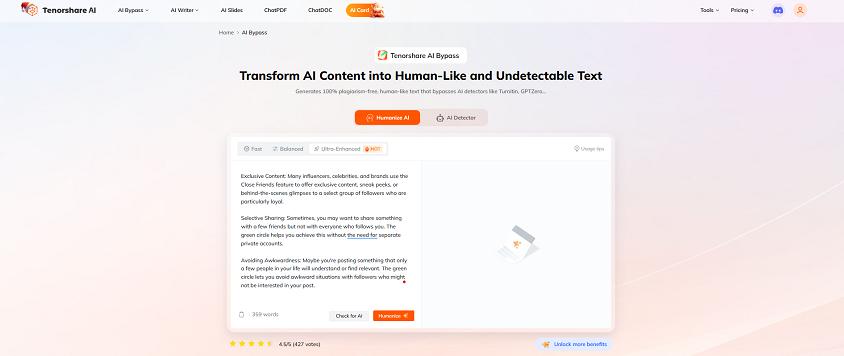Master the Art of Writing a Hook for an Essay: Expert Tips & Engaging Examples
When crafting an essay, the first few lines can make all the difference in capturing the reader's attention. This opening statement, known as the hook, serves as a gateway to your essay. Whether you're pondering how to write a hook for an essay or exploring ways to make your introduction stand out, a well-crafted hook is essential. In this guide, we’ll explore what a hook is, its significance, and the different types you can use to create a compelling introduction.
Catalogs:
What is a Hook in an Essay?
A hook is a sentence or a short paragraph at the beginning of your essay that grabs the reader's attention. It sets the tone and provides a glimpse of the subject matter, encouraging the reader to dive deeper. Think of it as the bait that lures readers into the story you are about to unfold. Whether you're figuring out how to write a hook for an argumentative essay, an informative one, or even an analytical piece, the hook is your tool to make a strong first impression.
Why is it Important to Have a Good Essay Hook?
A strong essay hook is crucial for several reasons:
- Engages the Reader: An intriguing opening ensures the reader stays interested in your essay.
- Sets the Tone: The hook establishes the mood and direction of your essay, preparing the reader for what's to come.
- Builds Curiosity: A good hook piques curiosity, making the reader want to learn more about your topic.
- Improves Retention: In academic or professional writing, the hook helps convey your point effectively by keeping the audience engaged.
Mastering how to write a good hook for an essay ensures that your writing leaves a lasting impression.
6 Types of Essay Hooks
Choosing the right type of hook depends on your essay’s purpose and audience. Here are six effective hooks to consider:
1. Rhetorical Questions
A rhetorical question encourages readers to think about the subject while setting the stage for your essay. For example:
-
“What if the key to solving climate change lies in individual actions rather than global policies?”
This hook stimulates curiosity and leads readers toward your argument.
2. Fact/Statistic
Starting with a surprising fact or statistic immediately grabs attention. For instance:
-
“Did you know that over 60% of college students struggle with crafting compelling essay introductions?”
Such a hook is particularly effective in analytical or informative essays.
3. Quote
Using a relevant quote can lend credibility to your essay and provide a strong starting point. For example:
-
“‘Education is the most powerful weapon which you can use to change the world.’ – Nelson Mandela.”
This type of hook works well when exploring how to write a hook for an analytical essay , offering depth to your introduction.
Also Read: 100+ Quotes for Cherished College Memories
4. Anecdote
Sharing a brief, relevant story can make your essay relatable and engaging. For example:
-
“As I sat staring at the blank screen, wondering where to begin my essay, I realized the importance of an effective hook.”
Anecdotes are especially useful for personal or narrative essays.
5. Description
A vivid description immerses the reader in your essay’s context. For example:
-
“The classroom buzzed with whispers as the clock ticked closer to submission time, each student nervously clutching their essays.”
This type of hook is ideal for setting a scene or creating an emotional connection.
6. Common Misconception
Addressing a misconception surprises the reader and sets the stage for your argument. For example:
-
“Many believe that essay hooks are optional, but a strong introduction can make or break your writing.”
This approach works well when learning how to write a hook for an informative essay .
Tips for Writing an Effective Hook
Creating a hook requires practice and precision. Here are some tips to guide you:
- Know Your Audience: Tailor your hook to the interests and knowledge level of your readers.
- Keep It Relevant: Ensure the hook aligns with your essay’s topic and tone.
- Be Concise: A good hook is brief but impactful; avoid overloading the reader with information.
- Experiment with Styles: Try different types of hooks to see which works best for your essay.
- Use Strong Language: Powerful and evocative words can make your hook more engaging.
- Seek Feedback: Share your hook with others to gauge its effectiveness.
Want Your Text Free from AI Detection? Try Tenorshare AI Bypass
With the rise of AI-generated content, ensuring your writing appears authentic has become increasingly important. Tenorshare AI Bypass is a tool designed to make your text undetectable to AI detectors. If you're exploring how to write a good hook for an essay and want to maintain originality, this tool can help refine your content. Its advanced algorithms ensure your work remains creative and human-like, making it perfect for academic and professional writing.
Using Tenorshare AI Bypass ensures your content is polished, unique, and free from detection by AI tools, helping you maintain credibility in both academic and professional settings.

Conclusion
Crafting a compelling essay hook is an art that requires understanding your audience and the purpose of your essay. Whether you’re exploring how to write a hook for an essay or an argumentative one, the right hook sets the tone for success. Remember to experiment with different types, such as rhetorical questions, facts, or anecdotes, to find what works best for your topic.
If you're working with AI-generated content, it's essential to humanize AI text to ensure your hook sounds natural and engaging. By mastering the art of the hook, you can elevate your essays and leave a lasting impression on your readers.
FAQs
How do I know which type of hook to use?
Consider your essay’s purpose and audience. For instance, use a statistic for an analytical essay and an anecdote for a personal narrative.
Can I use multiple hooks in an essay?
Yes, you can use different hooks for various sections to maintain interest, but ensure they align with your overall message.
What makes a hook effective?
An effective hook is relevant, engaging, and sets the stage for the rest of your essay.
Are hooks necessary for all types of essays?
While not mandatory, a good hook enhances the reader's experience and improves retention, making it a valuable addition to any essay.
Can AI tools help me write better hooks?
Yes, tools like Tenorshare AI Bypass can help refine your hooks and ensure your content remains original and engaging.
Tenorshare AI Bypass
- Create 100% undetectable human-like content.
- Bypass All Al detector tool like GPTZero, ZeroGPT, Copyleaks, etc.
- Original content, free of plagiarism and grammatical errors.
- One-Click AI bypass with a clean and easy-to-use interface
You Might Also Like
- 8 Narrative Essay Outline for Your Story
- 240+ Interesting & Latest Kannada Essay Writing Topics for Students
- 180+ Interesting Telugu Essay Writing Topics for Students
- 210+ Interesting & Latest Punjabi Essay Writing Topics for Students
- Food Research Topics: Explore the Best Ideas for Your Research Paper
- 200+ Essential PTE Essay Topics for Practice and Preparation

